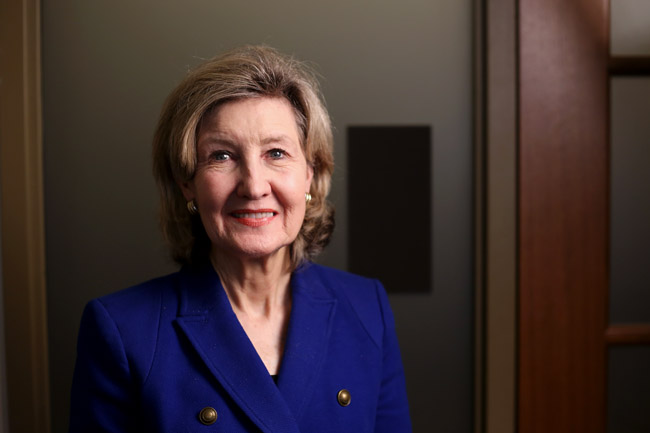UT energy researchers and students will help discover new drilling opportunities in Mexico when the country opens up its industry to foreign investment in June, according to Jorge Piñon, interim director of the Center for International Energy and Environmental Policy.
Piñon spoke at the Kay Bailey Hutchison Center for Energy, Law, and Business Symposium on Friday. The symposium involved representatives from geology schools across Texas, executive boards of energy companies, the U.S. government and Mexican environmental organizations.
UT’s legal agreements with Mexican universities will help fill the gaps in energy expertise that could stifle the success of the energy reforms, Piñon said.
“About two weeks ago, Provost Fenves was in Mexico City, and UT did sign three agreements with the National Autonomous University of Mexico,” Piñon said. “One agreement was a cooperation agreement on energy between the Cockrell School, the Jackson School and UNAM. We, the University of Texas, [are] moving forward in trying to establish academic bridges.”
Reforms in the past two years mark a stark shift in Mexico’s previous energy policies, which allowed only the national oil company, Petróleos Mexicanos, to drill in Mexico, according to Darcia Datshkovsky, public affairs and energy and earth resources graduate student.
“Until the reforms happened, Mexico had the most closed energy market in [the] whole world — more closed than even North Korea and Cuba,” Datshkovsky said. “Everywhere from production to distribution to refineries, there was absolutely no private investment. It was not just that it was not happening; it was forbidden by law.”
Scott Tinker, director of the Bureau of Economic Geology, said opening energy investment to foreign companies holds promise because Mexico has the third largest reserves of shale oil and gas in the world, and most of it remains unexplored.
“In Texas, we have drilled over 1 million wells since oil was discovered around a century ago,” Tinker said. “In a larger area in Mexico, there are only 50,000 wells — exploratory and developmental combined.”
Opening up the energy sector could be risky for the Mexican government and its citizens, according to Melinda Taylor, executive director of the KBH Energy Center.
“The Mexican government is trying to strike a balance to ensure that even with foreign investment, they will get to keep the revenue they need and protect their environment and workforce,” Taylor said.
Taylor said the symposium offered an interdisciplinary take on Mexican energy issues.
“The idea was to bring together people who would not ordinarily have been in the same room to discuss these issues,” Taylor said. “[Our program] is the first to consider the geopolitical perspective and the potential pitfalls for Mexico.”





















